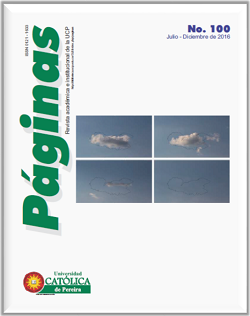The influence of Cardinal Nicolás de Cusa in the thought of Johanes Kepler
Keywords:
Science, religion, Renaissance, God.Abstract
In this article, it reflects at the epistemological level on the relationship of two great revolutionaries, Cardinal Nicolas de Cusa and Johanes Kepler, who, although living in different periods of time, both made great contributions to the thinking of humanity, raising questions about the universe and about God. For these themes, the main references will be Docta Ignorance, and Mysterium Cosmographicum (translated as The Secret of the Universe), because they will allow to analyze fundamental notions such as the relation between the minimum and the maximum, as well as the characterization of our universe as infinite but limited. Hence it is necessary to check a little in the categories of explicatio, complactio and contratio, which in turn will allow us to understand the concept of unity in diversity and with it, perfection. This leads us to consider that the ideas of Cusa, when taken by Kepler, made possible a true cultural and scientific change in his time, because for the historical course of scientific and philosophical thought, is possible to know that these Cusa inferences and especially his method of hypothesizing had great repercussion not only in the Copernican theories, but in the approaches of Giordano Bruno, Kepler and even Descartes himself. It is considered important and necessary to acknowledge these ideas that have contributed so much to support the relationship between science and religion from a horizon of complementarity and never opposition.


